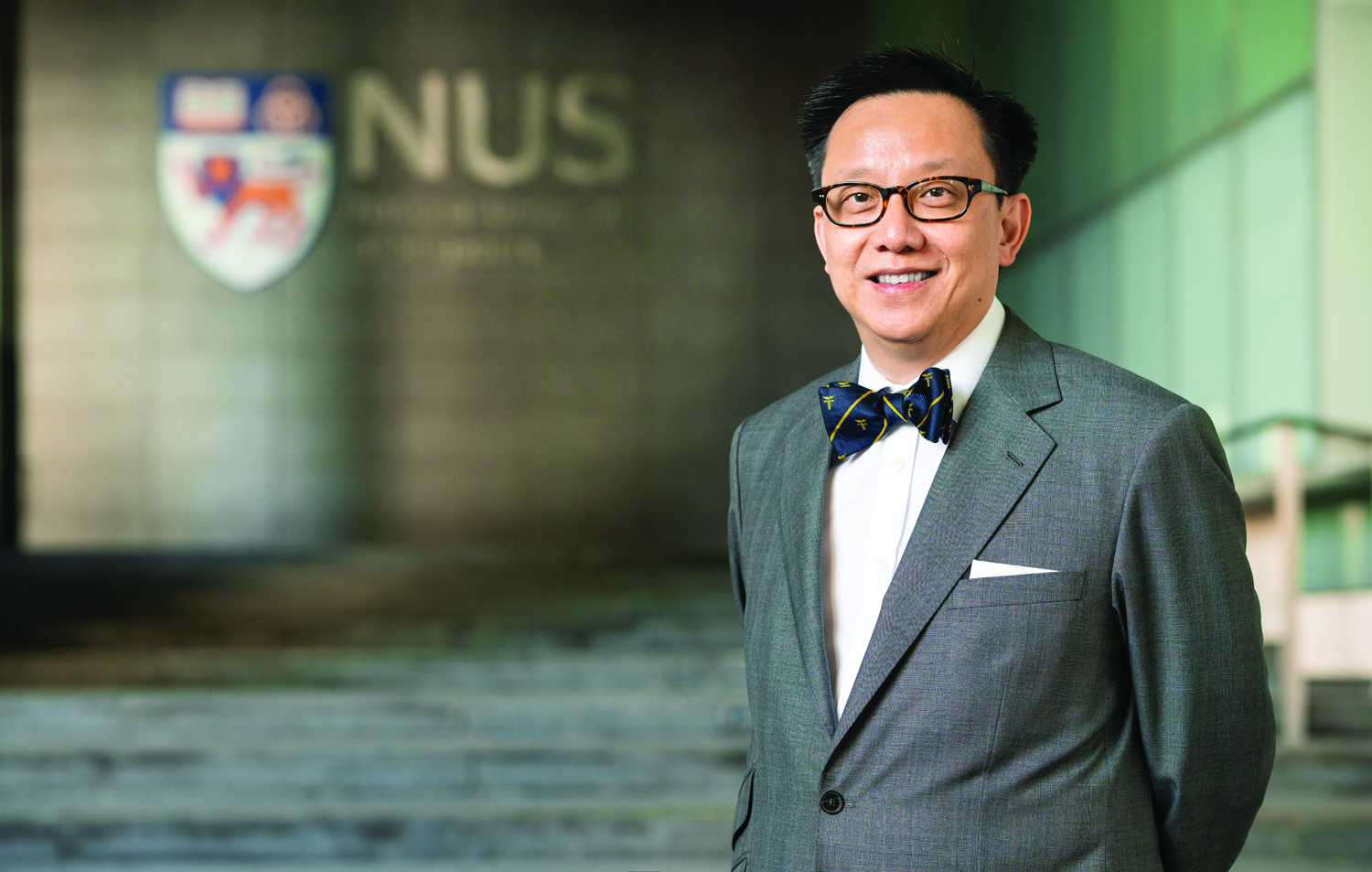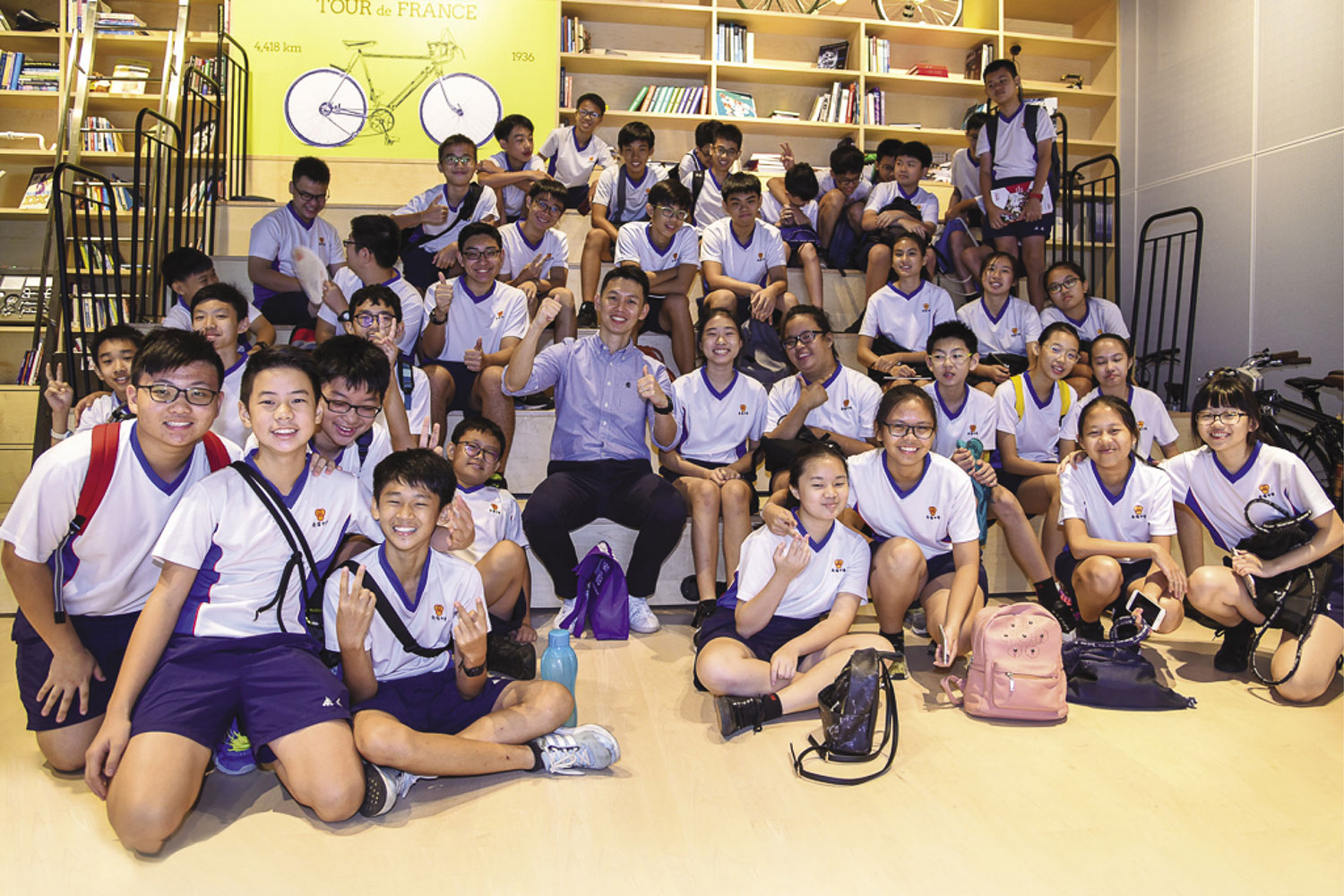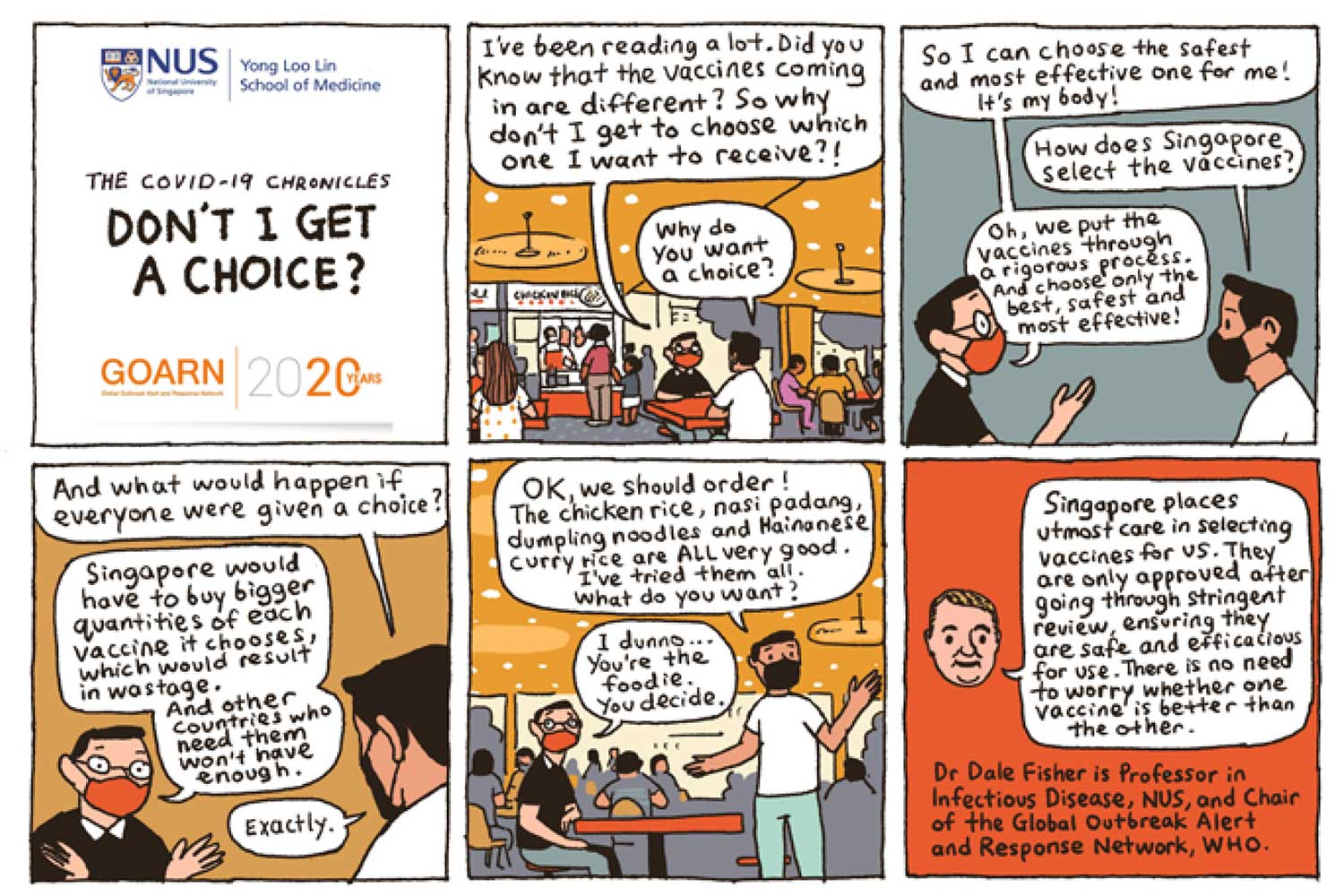
Issue 38 / May 2021
Dean’s Message

Dear Reader,
I
t has been 17 months since life as the world knew it was turned on its head by a virus. The advent and impact of COVID-19 made the global pandemic literally the mother of all black swan events. Classroom lectures and tutorials went virtual and key research work was suspended as previously bustling campus facilities emptied and fell silent when Singapore went into a five-week lockdown to flatten the trajectory. It forced the Yong Loo Lin School of Medicine to review and revalidate the way we worked. It made us revise and reconstitute our approach to medical education and research, even as we reorientated and pivoted to a whole new way of working.
While previous graduating classes could celebrate the end of medical studies, the graduating Class of 2020 marched off the campus on their last day of medical school and started work soon after, joining the fight against an implacable, rampaging, unseen enemy that had already infected thousands here and was imperilling millions more. Fifteen months later, we realise that technology makes many things possible. It enabled much of the work of the School to carry on, with staff taking turns to work from home. Productivity and morale remain high. COVID-19 has taught us many things and challenged us to be and do more than what we thought we were capable of. I am sure we will have many more lessons to learn before we see the end of this pandemic.
The Year of the Black Swan that was 2020 has also washed away notions of life continuing in a linear and uninterrupted way. While we can look forward to returning to some aspects of a status quo ante, I believe we must accept the reality of the new ab-normal. We are now in a time when not everything will go back to pre-COVID-19 days. New opportunities, new ways of doing things better await and we must seize the opportunities. In that spirit, Professor Shawn Chen of the Department of Diagnostic Radiology, together with colleagues from the Peking Union Medical College Hospital and the Chinese Academy of Medical Science has found a way to reduce toxicity and dose levels for Peptide Receptor Radionuclide Therapy, used in the treatment of neuroendrocrine cancers. The technology has been licensed to a US company and an Investigational New Drug (IND) application has been approved by the U.S. Food and Drug Administration (FDA). Prof Chen is now planning a clinical trial with the National University Cancer Institute, Singapore at NUH.
The issue of female fertility has come into sharp focus in recent years, with more women getting married later and having children later in life. In Singapore, the number of women giving birth in their 40s has almost doubled in the last three to four decades, according to data from Singapore Department of Statistics. Conception is an uphill task for women above 40 as fertility declines with age. The chances of natural conception fall to fewer than 5% and this also often comes with serious health risks and complications, such as miscarriages and premature live births, and higher chances of having a child with Down’s Syndrome. The Bia-Echo Asia Centre for Reproductive Longevity and Equality that has just been established here at the School will study ways to advance female fertility, reproductive longevity, and health-span. Research initiatives at the Centre will be led by scientists and clinicians from NUS Medicine and other institutions here as well as the Asia-Pacific, US and Europe, specialising in women’s reproductive health, ageing, and digital medicine. The effort will seek to find ways to improve and lengthen female reproductive health and longevity, helping women to preserve and improve their reproductive systems for conception and general health, potentially enabling women to conceive safely in their later years.
Still on the women’s health issues: a local research paper published in January found that 40% of pregnant women have clinical depression or high levels of depressive symptoms. It drew data from Singapore’s largest birth cohort study, titled Growing Up In Singapore Towards Healthy Outcomes (GUSTO), which has been tracking some 1,000 mother-and-child pairs since 2009, when the children were conceived. About 10% of the pregnant mums in the study probably had clinical depression, based on the widely used Edinburgh Postnatal Depression Scale, while the rest had high levels of depressive symptoms. Depressive symptoms do not just affect the pregnant mother, but may have an impact on her unborn child’s long-term development as well. This is because elevated hormones or decreased blood flow from the mother to the child may reprogramme the structure and function of the foetal brain. The resulting “negative impact” includes problems with self-control and self-discipline, as well as managing their emotions.
In the post-pandemic, ab-normal, the work of the School continues apace. We aim to educate and train competent and compassionate doctors and find solutions and approaches for better health, human potential, and healthcare.
Yours sincerely,

Chong Yap Seng




